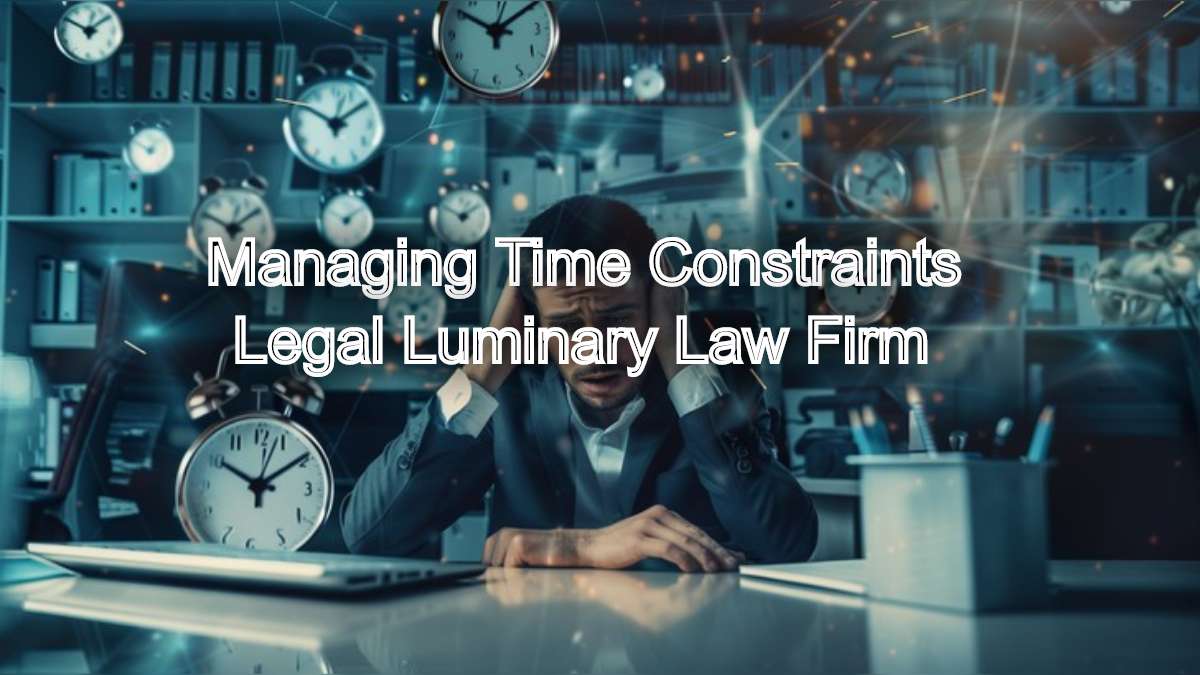Managing Time Constraints: Navigating the Limitation Act
Managing Time Constraints: The Limitation Act sets forth a crucial framework within the legal landscape, establishing time limits for the commencement of legal proceedings. Consequently, adhering to these limitations is paramount for both plaintiffs and defendants. Furthermore, navigating these time constraints can be intricate, requiring a nuanced understanding of the Act’s provisions. Therefore, at Legal Luminary Law Firm, we possess the expertise to guide our clients through the complexities of the Limitation Act, ensuring their legal rights are protected and their interests are effectively represented.
Managing Time Constraints: Navigating the Limitation Act: Legal Luminary Law Firm
Firstly, it is essential to comprehend the fundamental principles underlying the Limitation Act. Essentially, the Act aims to promote certainty and finality in legal disputes. By establishing specific timeframes for initiating legal action, the Act prevents stale claims from being pursued, thereby fostering a fair and efficient legal system. Moreover, the Act encourages parties to diligently pursue their rights within a reasonable timeframe, preventing undue delay and prejudice to the opposing party.
However, the Limitation Act is not without its complexities. Indeed, various factors can impact the applicable limitation period, including the nature of the cause of action, the identity of the parties involved, and the specific circumstances of the case. For instance, different limitation periods apply to different types of claims, such as contract disputes, tort claims, and property disputes. Furthermore, the discovery rule, which delays the commencement of the limitation period until the plaintiff discovers or should have discovered the cause of action, introduces further complexities.
Navigating the Intricacies
Accordingly, navigating the intricacies of the Limitation Act requires meticulous attention to detail and a deep understanding of legal principles. At Legal Luminary Law Firm, our team of experienced attorneys possesses the requisite knowledge and expertise to effectively analyze the applicable limitation period in each case. Moreover, we diligently investigate the relevant facts and circumstances to determine the precise commencement date of the limitation period. Consequently, we are able to provide our clients with accurate and timely legal advice, ensuring their claims are filed within the prescribed timeframe.
In addition to identifying and analyzing applicable limitation periods, our firm also assists clients in effectively addressing potential defenses based on the Limitation Act. For example, if a defendant asserts that the plaintiff’s claim is time-barred, we will vigorously defend our client’s position by exploring potential arguments for tolling or extending the limitation period. Such arguments may include equitable tolling, fraudulent concealment, or the discovery rule. Furthermore, we will diligently gather evidence to support our client’s position and effectively present our arguments to the court.
Technical Aspects
Beyond the technical aspects of the Limitation Act, our firm also emphasizes the importance of proactive legal strategies. Indeed, by proactively addressing potential legal issues and implementing effective risk management measures, our clients can significantly reduce the risk of their claims being time-barred. For instance, we advise our clients to maintain meticulous records of all relevant documents and communications. Furthermore, we encourage our clients to promptly consult with legal counsel upon the emergence of any potential legal issues. By taking these proactive steps, our clients can ensure that their legal rights are protected and that their interests are effectively represented.
Frequently Asked Questions
The Limitation Act is a piece of legislation that establishes time limits for the commencement of legal proceedings. It aims to promote certainty and finality in legal disputes by preventing stale claims and encouraging parties to diligently pursue their rights within a reasonable time frame.
Several factors can impact the applicable limitation period, including:
Nature of the cause of action
Identity of the parties involved
Specific circumstances of the case
Legal Luminary Law Firm can assist clients in several ways, including:
Analyzing applicable limitation periods
Addressing potential defenses
Proactive legal strategies
Clients can take several proactive steps, including:
Maintaining meticulous records: Keeping detailed records of all relevant documents and communications is crucial for establishing the date of the cause of action.
Promptly consulting with legal counsel: Consulting with legal counsel as soon as potential legal issues arise can help ensure that any necessary legal action is taken within the applicable limitation period.
Implementing effective risk management measures: Proactive risk management strategies can help prevent legal disputes and reduce the risk of claims being time-barred.
No, this article is for informational purposes only and does not constitute legal advice. It is essential to consult with an experienced attorney for legal advice on specific legal matters.
Conclusion
In conclusion, navigating the complexities of the Limitation Act requires a nuanced understanding of legal principles and a commitment to meticulous legal analysis. At Legal Luminary Law Firm, we possess the expertise to guide our clients through these complexities, ensuring their legal rights are protected and their interests are effectively represented. By providing comprehensive legal counsel and diligently pursuing our clients’ objectives, we strive to achieve the most favorable outcomes for our clients in all legal matters.
Read More
- Financial Instruments Explained: Insights into the Negotiable Instruments Act
- Resolving Disputes: Navigating the Arbitration and Conciliation Act
- Managing Foreign Exchange: Understanding the FEMA Act
- Trade Compliance Simplified: Exploring the Customs Act
- Navigating GST: Insights into the Goods and Services Tax (GST) Act
- Ministry of Law and Justice:

